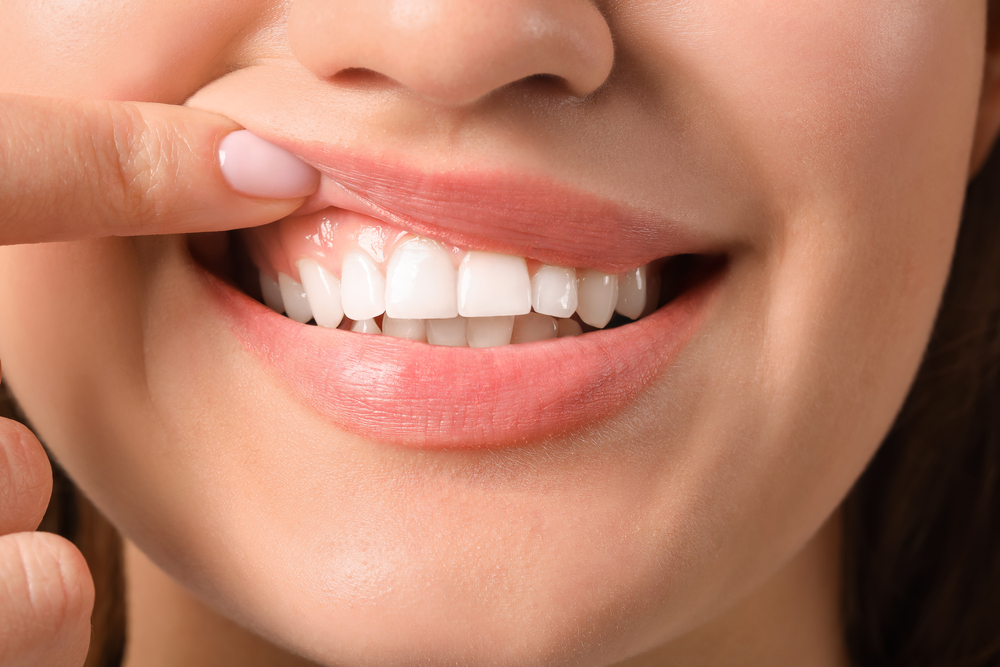Maintaining healthy gums is not just about having a beautiful smile—it’s a crucial aspect of overall health. Gum problems can lead to severe oral health issues and may even affect other parts of your body. Understanding how to keep your gums healthy and recognizing the signs of potential problems are key to preventing more serious health conditions, including oral cancers. This guide will walk you through the essentials of gum health, from daily care to recognizing when it’s time to seek treatment.
The Importance of Gum Health
Your gums play a vital role in supporting your teeth and maintaining oral health. They form a protective barrier around your teeth, preventing bacteria and food particles from entering your bloodstream. However, when gum health is compromised, this barrier weakens, leading to a range of problems such as inflammation, infection, and even tooth loss.
Healthy gums are firm, pink, and do not bleed during brushing or flossing. When gums are not well cared for, they can become red, swollen, and prone to bleeding—a condition known as gingivitis. If left untreated, gingivitis can progress to periodontitis, a severe gum disease that can cause irreversible damage to the gums and the bone supporting the teeth.
Understanding Common Gum Problems
Several factors can contribute to gum problems, including poor oral hygiene, smoking, certain medications, and underlying health conditions like diabetes. The most common gum issues include:
1. Gingivitis: The earliest stage of gum disease, gingivitis, is characterized by red, swollen gums that may bleed during brushing or flossing. The primary cause is plaque buildup on the teeth, which irritates the gums.
2. Periodontitis: If gingivitis is not treated, it can progress to periodontitis, where the inner layer of the gum and bone pull away from the teeth, forming pockets that can become infected. This can lead to tooth loss and may require more intensive treatment.
3. Gum Recession: Over time, the gums can recede or pull back from the teeth, exposing the roots. This can lead to sensitivity, decay, and an increased risk of gum disease.
4. Gum Swelling: Gums swelling is a common symptom of various gum issues. It can be a sign of gingivitis, periodontitis, or an infection. Swollen gums can be painful and may require professional treatment to resolve.
Gums Swelling Treatment
If you notice that your gums are swollen, it’s essential to address the issue promptly. Gums swelling can be a sign of an underlying problem that needs treatment to prevent further complications. Here are some steps to manage and treat swollen gums:
1. Improve Oral Hygiene: The first step in treating swollen gums is to improve your oral hygiene routine. Brush your teeth at least twice a day with fluoride toothpaste, floss daily, and use an antiseptic mouthwash to help reduce bacteria in your mouth.
2. Professional Cleaning: If plaque and tartar buildup are contributing to your gum swelling, a professional dental cleaning may be necessary. Your dentist or dental hygienist can remove the buildup that regular brushing and flossing might miss.
3. Antibiotics: In some cases, your dentist may prescribe antibiotics to treat an infection that is causing your gums to swell. This can help reduce the swelling and eliminate the infection.
4. Lifestyle Changes: Smoking, poor diet, and stress can contribute to gum problems. Quitting smoking, eating a balanced diet rich in vitamins and minerals, and managing stress can improve your gum health.
5. Regular Dental Check-ups: Regular dental visits are crucial for maintaining gum health. Your dentist can monitor your gums for any signs of problems and provide early intervention if needed.
The Connection Between Gum Health and Oral Cancers
Oral cancers are a serious health concern that can affect any part of the mouth, including the gums. While the exact cause of oral cancers is not always known, certain risk factors increase the likelihood of developing this disease. These include smoking, heavy alcohol use, and a history of HPV infection.
One of the most significant ways to reduce the risk of oral cancers is to maintain good oral hygiene and healthy gums. Inflammation and infection in the gums can create an environment that may increase the risk of cancerous cells developing. Regular dental check-ups are vital because they allow your dentist to spot early signs of oral cancers, such as unusual lumps, sores, or patches of discoloration in the mouth.
Preventing Gum Problems and Promoting Oral Health
Preventing gum problems is easier than treating them, and it all starts with a solid oral care routine. Here are some tips to keep your gums and teeth healthy:
1. Brush Correctly: Use a soft-bristled toothbrush and fluoride toothpaste to brush your teeth at least twice a day. Pay special attention to the gum line, where plaque tends to accumulate.
2. Floss Daily: Flossing is crucial for removing food particles and plaque from between the teeth and along the gum line. Make it a daily habit to prevent gum disease.
3. Use Mouthwash: An antimicrobial mouthwash can help reduce bacteria in your mouth and keep your gums healthy. Look for a mouthwash that is specifically designed for gum health.
4. Eat a Balanced Diet: A diet rich in fruits, vegetables, lean proteins, and whole grains can help support your oral health. Avoid excessive sugar and acidic foods that can damage your teeth and gums.
5. Visit Your Dentist Regularly: Regular dental visits are essential for preventing and treating gum problems. Your dentist can provide professional cleanings, monitor your oral health, and offer advice on maintaining healthy gums.
Healthy gums are the foundation of a healthy life. By taking care of your gums, you can prevent a range of oral health issues, including gum swelling, gingivitis, periodontitis, and even oral cancers. Remember, prevention is key, so make oral care a priority in your daily routine and visit your dentist regularly. With the right care, you can enjoy a lifetime of healthy gums and a bright, beautiful smile.



